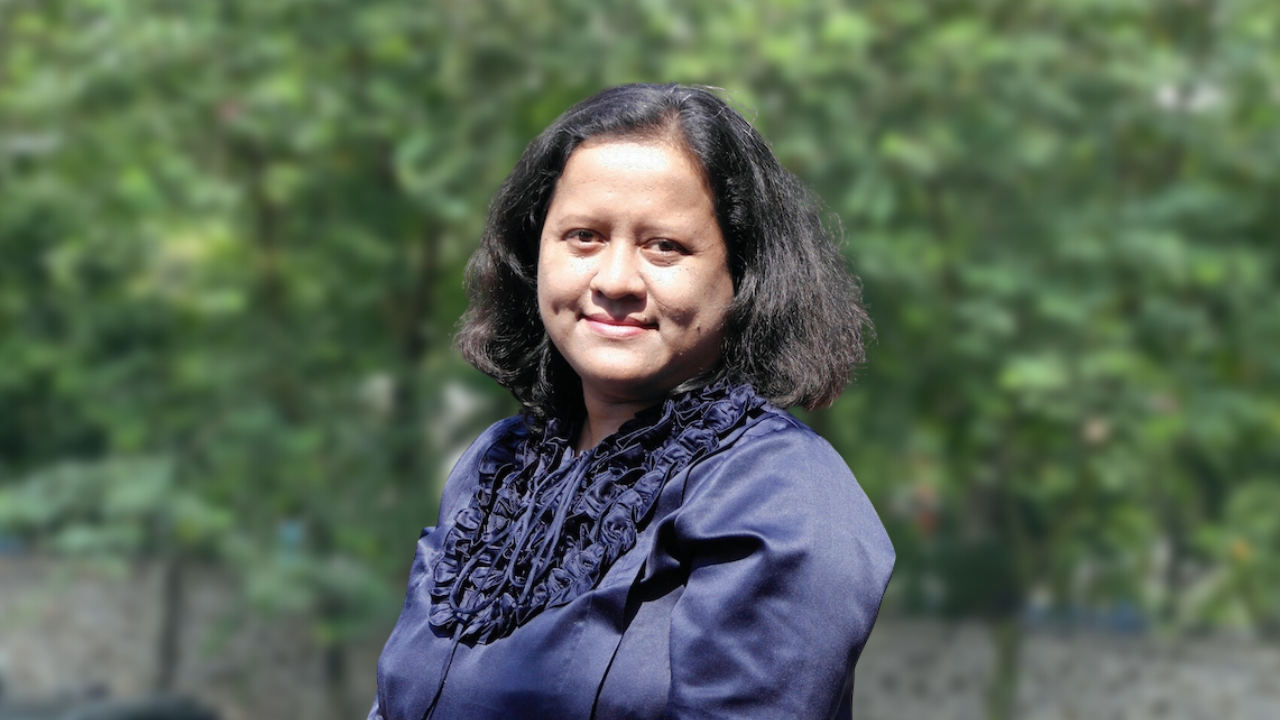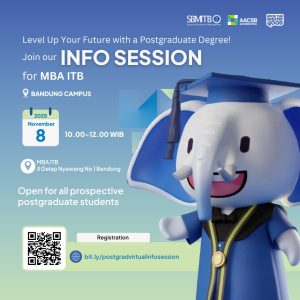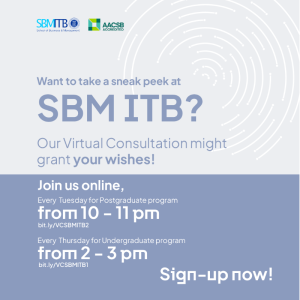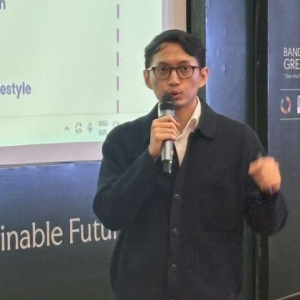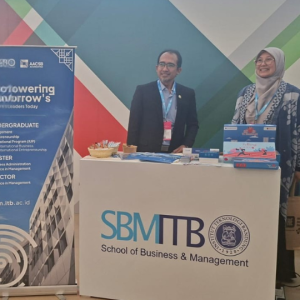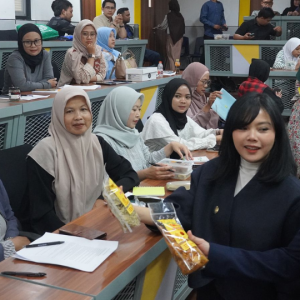SBM ITB held a face-to-face event exploring the social impact of business schools on Wednesday (11/02/2022). The exploration is SBM’s effort to improve the quality of business education. This commitment is part of SBM ITB’s membership in the Association to Advance Collegiate Schools of Business (AACSB), a global organization of educators, students, and businesses dedicated to improving the quality of business education.
The exploration was opened by two SBM ITB lecturers, Dzikri Firmansyah Hakam and Ilma Aulia Zaim. Other lecturers, including Santi Novani, Aurik Gustomo, and many more, attended the event.
The Director of Research and Knowledge of SBM ITB, Atik Aprianingsih, spoke at the sharing session. She explained three important factors playing a role in creating a business school that benefits the community, namely: talent empowerment, community welfare, and organizational performance. Business schools build connections, solve business problems, develop purpose-driven leaders, create lifelong learning centers, and inspire others.
SBM ITB currently focuses on many areas that increase social impact, not only in research but also in improving leadership skills.
In formulating a strategy for improving school quality, SBM ITB focuses on four critical factors: definition, priority, implementation, and measurement, all of which consider the school’s vision and mission.
This will likely affect the curriculum in research and community service. In addition, communication is needed in building social impact for stakeholders, such as students, alumni, lecturers, and the community.
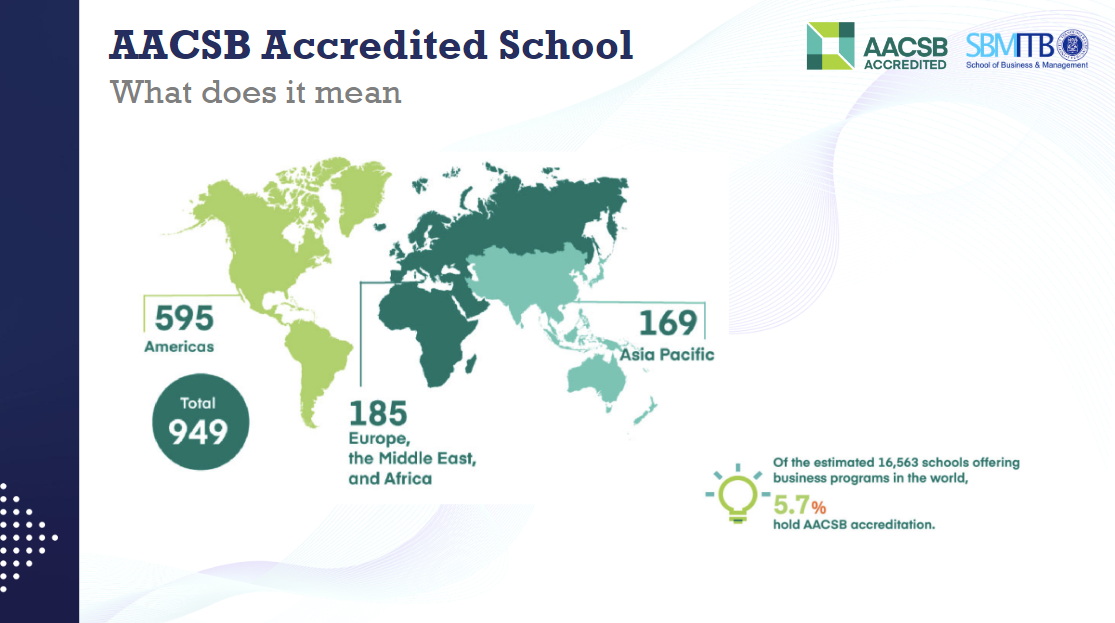
AACSB will guide SBM ITB in developing strategies based on these standards. SBM ITB considers standard 1, standard 4, standard 8, and standard 9. Standard 1 focuses on mission statements, strategic initiatives, goals, objectives, and key performance indicators and discusses how schools intend to make a positive social impact. On the other hand, standard 4 explores curriculum content, curriculum management and innovation, experiential learning, lifelong learning, and social impact.
Standard 8 deals with impact, with two types of impacts used to measure school success. Type 1 social impact can take the form of rewards and recognition of research (e.g., selection as a member of the academic community). Type 2 social impacts can be in the form of effects on business development, improvement of the brand or image of SBM ITB, and contributions through membership of boards and government bodies.
Finally, standard 9 explores school engagement with external stakeholders that leads to social impact.
SBM ITB aims to benefit society through networks, such as collaborating with universities throughout Indonesia and focusing on research that benefits multiple stakeholders.
